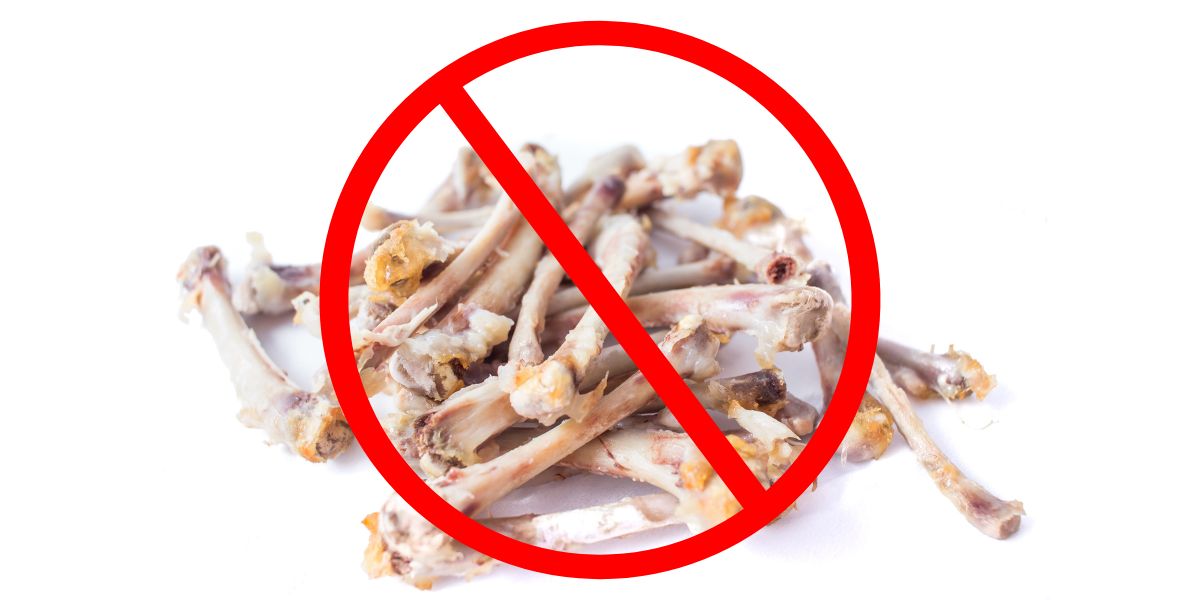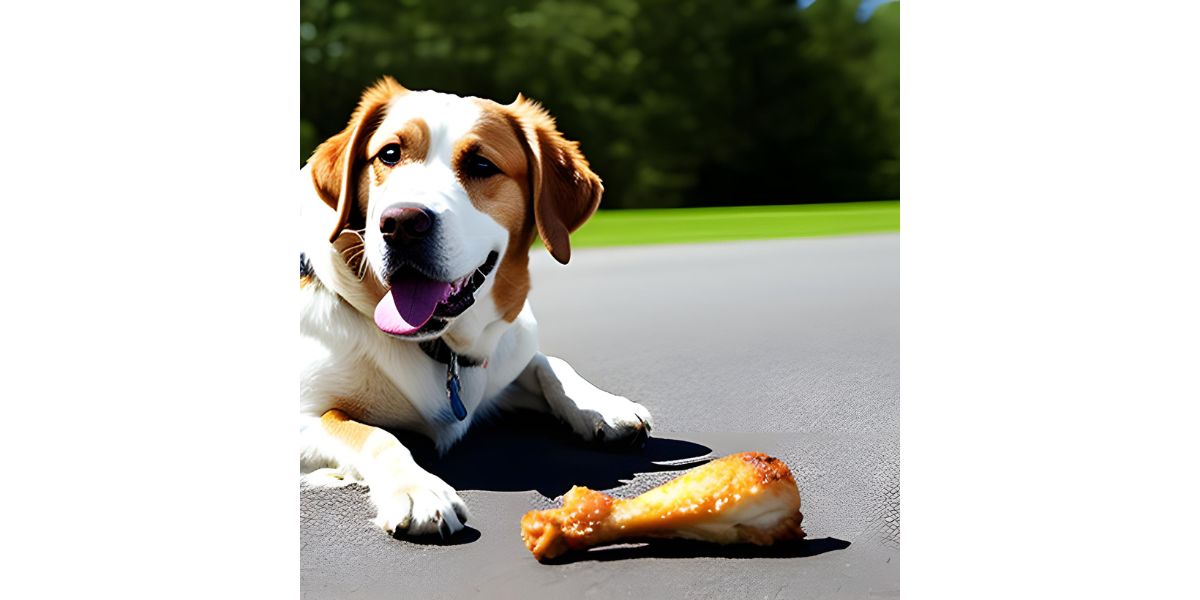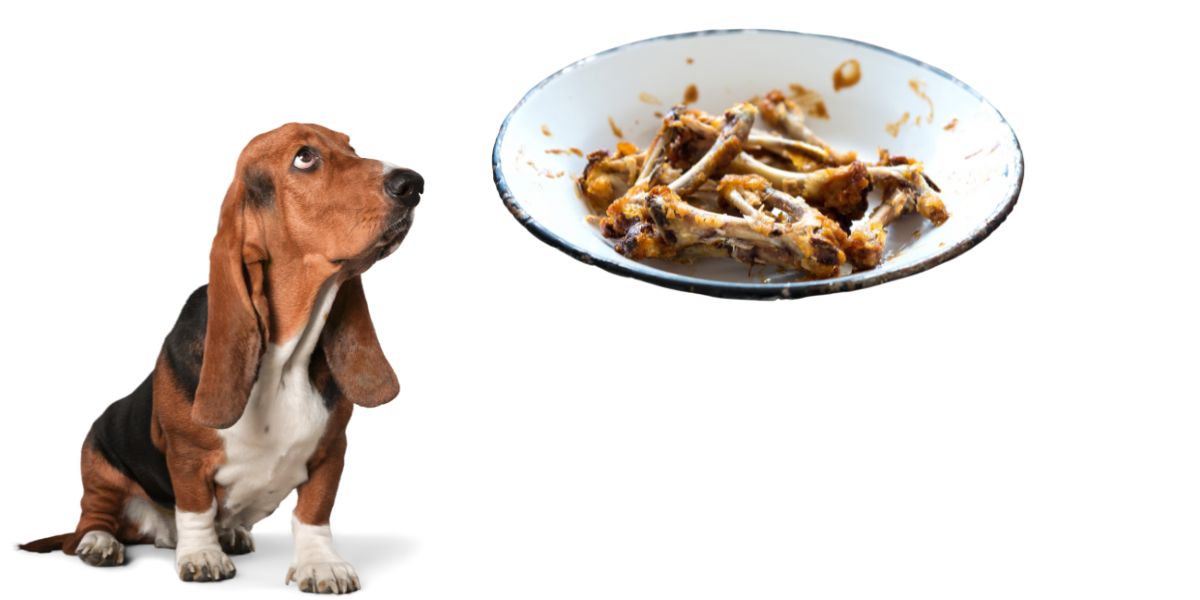Can Dogs Eat Chicken Bones: A Complete Guide

In this article, we will explore the topic of whether or not dogs can safely eat chicken bones. You’ll learn about the potential risks and benefits, as well as some important considerations to keep in mind. By the end, you’ll have a complete guide to help you make an informed decision about feeding chicken bones to your furry friend. Let’s get started!
Introduction
Why this guide is important
As a dog owner, it’s important to be knowledgeable about the food and treats you offer to your furry friend. With various conflicting opinions and information available, it can be confusing to know if certain foods are safe for dogs to consume. One such concern is whether dogs can eat chicken bones. This complete guide aims to provide you with a comprehensive understanding of the risks associated with feeding dogs chicken bones and alternative options to consider.
Understanding the risks
Before delving into whether dogs can safely eat chicken bones, it’s crucial to understand the potential dangers and risks associated with it. Feeding dogs bones, especially chicken bones, can lead to serious health complications. These risks include splintering of bones, choking hazards, and intestinal blockages. It’s essential to be aware of these dangers to ensure the safety and well-being of your beloved pet. Let’s explore these risks in detail.
The Dangers of Chicken Bones
Splintering of bones
Chicken bones, especially when cooked, can easily splinter into sharp fragments. These splinters can cause severe injuries to a dog’s mouth, throat, or digestive tract when chewed on or swallowed. The sharp edges of the broken bones may create lacerations or puncture the delicate tissues in their gastrointestinal system, leading to internal bleeding or infections.
Choking hazards
Another significant danger of chicken bones is the risk of choking. The small size and irregular shape of chicken bones make it easy for them to become lodged in a dog’s throat, blocking their airway. This can quickly escalate into a life-threatening situation, requiring immediate intervention to remove the bone or perform the Heimlich maneuver on the dog.
Intestinal blockages
When a dog swallows chicken bones, they can obstruct their digestive tract, leading to intestinal blockages. These blockages can be extremely painful for the dog and may cause symptoms such as severe abdominal pain, vomiting, and loss of appetite. In severe cases, surgery may be required to remove the lodged bones and prevent life-threatening complications.

Can Dogs Safely Eat Chicken Bones?
Now that you are aware of the potential risks associated with feeding dogs chicken bones, it’s important to understand the factors that determine whether they can safely consume them.
Cooked vs. raw bones
Both cooked and raw chicken bones pose risks to dogs, but cooked bones are particularly dangerous. Cooking weakens the bone structure, making them more prone to splintering. Raw bones, on the other hand, are generally softer and more flexible, reducing the risk of splintering. However, it’s important to note that even raw bones can pose choking or blockage hazards if not given in an appropriate size and under supervision.
Size matters
The size of the bone plays a crucial role in determining whether it’s safe for your dog to consume. Larger bones, such as the thigh bones, are less likely to splinter and pose choking hazards. Smaller bones, such as the chicken wing and rib bones, are more prone to splintering and can easily become lodged in a dog’s throat. It’s crucial to choose bones that are appropriately sized for your dog and their chewing capabilities.
Supervision and moderation
If you decide to feed your dog chicken bones, it’s vital to do so under strict supervision. Monitor your dog while they are chewing on the bone to ensure they don’t break it into small, dangerous pieces. Additionally, limit the frequency and duration of bone chewing sessions to avoid excessive consumption. Dogs should always have access to fresh water while consuming bones to prevent choking and help ease the digestion process.
Alternatives to Chicken Bones
Given the risks associated with feeding dogs chicken bones, it’s wise to explore alternative options that are safe and healthy for your furry companion.
Safe and healthy options
Rather than relying on chicken bones for your dog’s chewing needs, there are various safe and healthy alternatives available. You can consider providing your dog with specially designed chew toys, such as rubber or nylon bones, which are specifically created to withstand intense chewing without any risks. These toys serve as a great alternative to bones, promoting dental health and providing mental stimulation.
Boneless meats
If you want to include meat in your dog’s diet, opt for boneless varieties instead of relying on bones for their nutritional needs. Boneless chicken, beef, or fish can provide the necessary protein without the risk of splintering bones. Remember to cook the meat thoroughly to eliminate any potential parasites or bacteria, ensuring the health and safety of your dog.
Commercial dog treats
There are plenty of commercially available dog treats that are specifically designed for safe consumption. These treats are manufactured with the health and well-being of dogs in mind, ensuring that they provide both nutritional value and enjoyment. Look for treats that are made from quality ingredients and have undergone rigorous safety testing.

Signs and Symptoms of Bone-related Issues
Despite your best efforts, accidents can happen, and your dog may end up consuming chicken bones. It’s essential to be vigilant and aware of the signs and symptoms that may indicate bone-related issues.
Obvious signs of distress
If your dog is experiencing discomfort or pain due to ingesting chicken bones, you may notice obvious signs of distress. These can include pawing at their mouth, excessive drooling, whimpering, or crying. Pay attention to any visible injuries or blood around their mouth and seek immediate veterinary attention if you observe these symptoms.
Vomiting and diarrhea
Consuming chicken bones can irritate a dog’s stomach and digestive system, leading to vomiting and diarrhea. If you notice your dog consistently exhibiting these symptoms after consuming bones, it’s vital to consult your veterinarian for further evaluation and advice.
Lethargy and discomfort
Intestinal blockages or injuries caused by chicken bones can cause your dog to become lethargic and uncomfortable. They may display signs of abdominal pain, restlessness, or refusal to eat. If your dog appears to be in distress or is exhibiting these symptoms, it’s crucial to seek veterinary care immediately.
What to Do If a Dog Eats Chicken Bones
If you discover that your dog has consumed chicken bones, it’s important to take immediate action to minimize potential risks and seek appropriate treatment.
Immediate actions
If your dog has just ingested chicken bones, try to remove any remaining bones or fragments from their reach. Do not induce vomiting without professional guidance, as it may cause further harm. Offer your dog a small amount of food to help dilute the bones and promote a smoother passage through the digestive tract. Monitor their behavior closely, looking out for any signs of distress or discomfort.
Consulting a veterinarian
Once you have taken the initial steps, it’s crucial to consult with your veterinarian. Contact them immediately and provide them with a detailed account of the incident, including the size and approximate number of bones consumed. Your veterinarian will provide you with guidance based on your dog’s specific situation and may recommend further evaluation or treatment.
Treatment options
The treatment for a dog that has consumed chicken bones will depend on various factors, including the size of the dog, the size and number of the bones ingested, and the presence of any symptoms or complications. Your veterinarian may recommend options such as monitoring your dog closely for signs of distress, prescribing medications to aid digestion or alleviate discomfort, or performing diagnostic tests to assess the severity of any potential blockages.

Preventing Accidental Consumption of Chicken Bones
Prevention is always better than cure, and when it comes to chicken bones, it’s essential to take specific measures to ensure your dog’s safety.
Proper disposal of bones
When discarding chicken bones or any other food waste, make sure to do so in a secure and closed trash bin that your dog cannot access. Be aware of where you dispose of bones when out on walks or hikes to prevent your dog from scavenging and potentially consuming dangerous bones.
Training and discipline
Training your dog to refrain from picking up or consuming foreign objects can go a long way in preventing accidental consumption of chicken bones. Teach them the command “leave it” and reinforce it consistently during walks or playtime. Additionally, ensure that your dog understands basic obedience commands to minimize the risks associated with consuming hazardous substances.
Creating dog-friendly environments
Designate specific areas in your home and backyard where your dog can roam and play safely. Remove any chicken bones or other potential hazards from these areas. Dog-proofing your living spaces can greatly reduce the likelihood of accidental consumption of dangerous substances.
Myths and Misconceptions
As with any topic, there are often myths and misconceptions surrounding the safety of feeding dogs chicken bones. It’s important to debunk these misconceptions to make informed decisions about your dog’s diet.
Bones as dental care
Contrary to popular belief, chewing on bones does not provide optimal dental care for dogs. While gnawing on bones may help clean their teeth to some extent, it does not replace regular brushing and professional dental cleanings. Incorporate proper dental care practices into your dog’s routine, such as regular tooth brushing and providing dental treats specifically designed for oral health.
Digestive benefits
Some believe that dogs can digest bones easily and that they provide necessary nutrients. However, bones should not be considered a reliable source of nutrition for dogs. They may contain harmful bacteria or parasites, and the associated risks outweigh any potential digestive benefits. Opt for nutritionally balanced dog food and consult your veterinarian for advice on providing a wholesome and safe diet for your pet.

Conclusion
Ensuring your dog’s safety and well-being is of utmost importance. After exploring the risks and dangers associated with feeding dogs chicken bones, it’s evident that the potential harm outweighs any perceived benefits. By opting for safe alternatives, such as chew toys and boneless meats, you can provide your dog with enjoyment and nutrition without risking their health. Be vigilant in creating a dog-friendly environment, and always consult with your veterinarian for advice and guidance. With a balanced and informed approach, you can keep your furry friend healthy and happy for years to come.